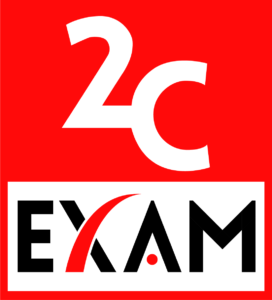According to the SFC Code of Conduct for Licensed Persons or Registered Persons regarding employee trading: licensed corporations/registered institutions (hereinafter referred to as companies) need to establish policies and inform employees in writing whether they are allowed to engage in personal trading in stocks, futures contracts, or leveraged foreign exchange contracts.
If the company allows employees to engage in personal trading or purchase securities, futures contracts, or leveraged foreign exchange trading contracts, the following is required:
Written policy outlining the conditions that employees must comply with when engaging in personal trading;
Employees must report all relevant accounts to management, including accounts of minor children and accounts in which the employee has a beneficial interest;
Generally, employees should conduct personal trading through their employer’s company or its affiliated companies;
If employees are allowed to trade personally through other brokers, copies of trade confirmations and account statements must be provided to company management;
Employee accounts and related accounts transactions must be recorded separately and clearly identified in the company’s records;
Management with no conflict of interest must supervise and review employee trading to prevent misconduct and ensure that it does not harm the interests of other clients.
In addition, a company may not knowingly trade securities or futures contracts for employees of another company unless it has obtained written consent from the other company.
Therefore, whether employees of Hong Kong licensed corporations/registered institutions can trade stocks mainly depends on whether their own company allows it, that is, the boss has the final say.
If allowed, it is not an immediate green light for trading stocks happily; employees still need to follow the company’s internal regulations. What internal regulations are usually in place?
Trade declaration and approval: Declare to the employer before making any transaction, and in some cases, obtain written approval from the company’s compliance department or supervisor before trading. This typically includes providing details about the securities, quantity, and price of the proposed transaction to ensure that the company understands the employee’s trading activity and prevents potential insider trading or conflicts of interest.
So, want to make a fortune in the stock market? Don’t forget to report to your boss first and get approval! Also, don’t hide your and your family’s trading activities!
Trading window periods: Trade within so-called “trading window periods.” These window periods typically begin after the company releases financial reports or other significant information to ensure that employees do not trade based on internal information.
So, have you heard any internal secrets? Don’t get excited! Never trade using this information; it is strictly forbidden!
Minimum holding period: Follow a minimum holding period, such as 30 or 60 days. This helps prevent employees from engaging in short-term trading based on internal information.
Bought stocks and want to sell them quickly? Don’t rush, take your time! Wait for 30 or 60 days before taking action.
Blacklist/restricted list: Prohibit or restrict trading in certain companies’ stocks, especially those related to the employer or clients. This helps prevent potential conflicts of interest and insider trading. Some stocks are off-limits; don’t touch them! Company resources are not for you to trade stocks with, and your trading activities must not affect the interests of the company and its clients; this is the bottom line!
Now, for a bonus question: if Xiao Mei is an employee of a Hong Kong asset management company, can she trade stocks? If so, what restrictions would apply?
-Xiao Mei may need to disclose and obtain approval from the company before engaging in personal trading.
-Xiao Mei may be prohibited from trading stocks held by the funds managed by the company to avoid conflicts of interest.
-Xiao Mei may need to follow a minimum holding period, such as 30 or 60 days, to prevent short-term trading.
-If Xiao Mei obtains non-public information about a company, she should comply with insider trading regulations and avoid trading while in possession of such information.
How can we help?
2CExam provides HKSI LE, IIQE, EAQE and SQE related exam preparation materials. We sell mock question banks for HKSI LE Papers 1, 2, 3, 5, 6, 7, 8, 9, 12 in Chinese and English; and bibles for HKSI LE Papers 1, 2, 6, 7, 8 in Chinese. We also offer 1 on 1 tutorial services. Besides, we have also made free tutorial videos for HKSI LE Papers 1, 2, 6, 7, 8, 12 and posted on public channels such as Youtube/ Bilibili/ Tencent/ Iqiyi. 2CExam has been an exam training expert for years. Should you need any help please visit www.2cexam.com or contact us through:
Phone +852 2110 9644 Email: [email protected] Wechat: hk2cexam WhatsApp: +852 9347 2064
Please support us by leaving comments and likes if you think this article helps you!
You can scan or click on the QR codes to visit our social media.
Latest Article
Categories
過往文章
Contact US
-
Phone:
+852 2110 9644
-
Email:
-
WhatsApp
+852 9347 2064
-
WeChat
hk2cexam
Interesting Articles
Which license is required for bank employees engaged in securities business?
Should Hong Kong bank employees apply for an HKMA license or an SFC license? According to the licensing requirements for real estate practitioners, passing relevant qualification exams is a necessary condition for obtaining a real estate agent (individual) license or a salesperson license. The Hong Kong Securities and Futures Practitioners Qualification Exam (HKSI LE) is…
What is the difference between an SFC license and HKMA registration in Hong Kong?
What is the difference between an SFC license and HKMA registration in Hong Kong? In Hong Kong, the statutory organization responsible for regulating the securities and futures markets is the Securities and Futures Commission (SFC). The Securities and Futures Ordinance, which came into effect on April 1, 2003, grants the SFC regulatory authority over the…
What is an HKSI certificate?
What is an HKSI certificate? What is the use of an HKSI exam transcript? What is an HKSI certificate? Do I need an HKSI exam transcript or an HKSI certificate when applying for SFC registration? To work in the securities industry in Hong Kong, passing the Hong Kong Securities and Futures Commission (SFC) Licensing Exam…
How to obtain an exemption for the HKSI LE Securities and Futures Practitioners Qualification Examination?
How to obtain an exemption for the HKSI LE Securities and Futures Practitioners Qualification Examination? In the previous issue, we talked about how if someone wants to work in the securities industry in Hong Kong, they must first pass the Hong Kong Securities and Investment Institute’s (HKSI) Licensing Examination for Securities and Futures Intermediaries. Are…
Where can I register for securities exams in Hong Kong?
Where can I register for securities exams in Hong Kong? If you want to work in the securities industry in Hong Kong, you must pass the Securities and Futures Commission (SFC) Licensing Exam LE. The organization that conducts the Licensing Exam LE in Hong Kong is the Hong Kong Securities and Investment Institute (HKSI). The Hong…
Often hear the beautiful ladies and handsome gentlemen in the Hong Kong financial sector talking about the “178 license” they need to obtain. What exactly is it?
What is the Hong Kong 178 license? In fact, the 178 license is not a real license but refers to a combination of examination papers that need to be taken. It consists of the Hong Kong Securities and Futures Practitioners Qualification Examination Paper 1, Paper 7, and Paper 8. In Hong Kong, activities related to…
What is the SFC license in Hong Kong?
What is the SFC license in Hong Kong? The Securities and Futures Commission (SFC) of Hong Kong was established in 1989 as an independent statutory body responsible for regulating the securities and futures markets in Hong Kong. The Securities and Futures Ordinance and its subsidiary legislation grant the SFC the power to investigate, correct, and…
Why do people still buy materials from 2CExam while HKSI provides free study notes?
In addition to organizing LE exams, the HKSI will also provide students who take the LE exam with the exam coverage called the Study Note. It depicts what is covered in the exam with hundreds of pages and full of paragraphs. It is lengthy and contains a lot of data and examples that will not…
EAQE/ SQE Real Estate Agency Exam Coverage/ Scope for Revision
Many students are clueless about the exam coverage / scope for doing revision on the Estate Agent Qualifying Examination (EAQE) and Salesperson Qualifying Examination (SQE). VTC’s PEAK does not have any notes available for candidates to download. In fact, the scope of the exam is quite extensive. Some of the coverage can be downloaded from…
Is success an Unattainable Ideal in the Real Estate Industry? 10 Benefits of Being in the Real Estate Industry Can Stimulate Your Capacity
Is it difficult to succeed in the real estate industry? Living space is one of the indispensable elements in life. From the wealthy speculating and selling flats to ordinary people looking for a place to live, most Hong Kong people have the demand to rent or even invest in the real estate market. Hong Kong’s…






